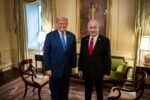The perception of Russia as a global antagonist has deep historical roots, shaped by a century of military aggression, geopolitical maneuvers, and ideological conflicts. Understanding why Russia is often viewed unfavorably requires examining key events and actions over the past 100 years that have significantly influenced international relations.
1. Russian Revolution and Civil War (1917-1922)
The Bolshevik Revolution of 1917 marked the beginning of significant upheaval. The subsequent civil war and the establishment of the Soviet Union in 1922 introduced a regime committed to spreading communist ideology, which alarmed Western powers.
2. World War II and the Cold War (1941-1991)
- World War II (1941-1945): Initially, the Soviet Union signed the Molotov-Ribbentrop Pact with Nazi Germany, facilitating the invasion of Poland. Later, the USSR joined the Allies after being invaded by Germany. The war ended with Soviet control over Eastern Europe, setting the stage for the Cold War.
- The Cold War (1947-1991): A period marked by intense rivalry between the Soviet Union and the United States, including proxy wars (Korea, Vietnam, Afghanistan), the nuclear arms race, and espionage. The Iron Curtain and the Berlin Wall became symbols of Soviet oppression.
3. Post-Soviet Russia and Regional Conflicts (1991-Present)
- Chechen Wars (1994-1996, 1999-2009): The brutal suppression of Chechen separatism by Russian forces drew international condemnation for human rights abuses.
- Invasion of Georgia (2008): Russia’s intervention in Georgia over the regions of Abkhazia and South Ossetia highlighted its willingness to use military force to achieve geopolitical aims.
4. Annexation of Crimea and the War in Ukraine (2014-Present)
The annexation of Crimea in 2014 was a blatant violation of international law, triggering widespread condemnation and sanctions. Russia’s ongoing support for separatists in Eastern Ukraine has resulted in a protracted and deadly conflict.
5. Alleged Interference in Foreign Elections and Cyber Warfare
Russia has been accused of meddling in various foreign elections, including the 2016 US Presidential election, through cyber-attacks and disinformation campaigns. These actions have further eroded trust and fueled anti-Russian sentiment.
6. Support for Authoritarian Regimes and Regional Instability
Russia’s support for regimes in Syria (Bashar al-Assad), Venezuela (Nicolás Maduro), and other authoritarian governments has positioned it against the interests of many Western and regional actors advocating for democratic governance and human rights.
Conclusion
Russia’s century-long history of military aggression, ideological conflict, and geopolitical maneuvers has significantly shaped global perceptions. From the Bolshevik Revolution and Cold War rivalries to contemporary conflicts and cyber warfare, Russia’s actions have often positioned it as a global antagonist. This historical context helps explain why the world views Russia with suspicion and, at times, outright hostility.







